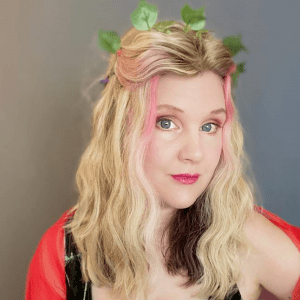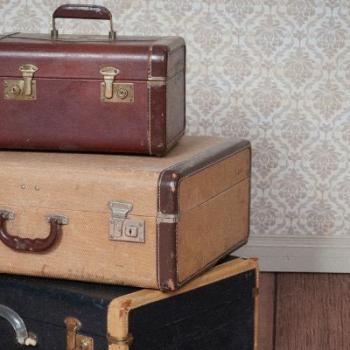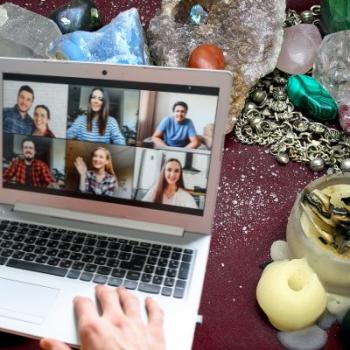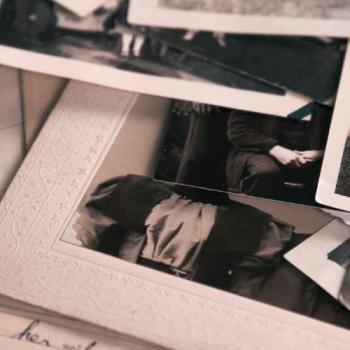
“You can’t change the world, only your reaction to it”
Yes, this is true. But what would happen if no one tried to change a single thing for other people?
Humanity is (mostly) a pack creature. It doesn’t thrive in ones and twos, we thrive in interwoven groups, learning from each other and interacting.
We need interaction.
We need connection.
People can’t do everything for themselves all of the time. Helping others and making a difference mostly makes individual humans feel happier.
We’ve evolved to look after the underdogs, because it means if we break a leg (or a brain) other people will look after us.
I’ve been studying a few therapy techniques recently (partly as a piece of my wider life goals, but also due to my brain being a little like a Sheepdog and needing constant stimulation whilst indoors to stop me chewing the furniture).
It’s been interesting looking at the evolution of CBT to DBT.
One of the big sentiments within CBT is you’re responsible for your own growth, emotions, and reactions.
It’s an important factor in life.
When we stop expecting others to fulfil our needs, we find it easier to step outside of our raw hurt and become ultimately happier.
Similarly, once we stop wanting to fix other people and the world in general, we find it easier to look our own requirements right in the face and answer them.
But is this really how society works?
It’s no surprise to me Cognitive Behavioural Therapy became popularised during the time people stopped looking out for each other so much both politically and personally.
Because whilst we should all continually strive to look after ourselves first, this shouldn’t be at the expense of social cohesion.
The research of Booth and Rowntree within the late 18th century identified there being specific times in a person’s life when they need more help from others to survive efficiently. If we look at this from a modern perspective this is:
- In young adulthood
- When parenting young children
- When changing careers or studying
- In old age
We can also add crisis points to these natural times – illness, periods of poor mental health, or economic factors such as the loss of a job.
This is how taxes work. We pay during the times we can look after ourselves and others in order to receive during the times we naturally can’t and need others to pay for us.
DBT starts from a place of love, acceptance, and support. It wants you to change but does so whilst not believing you’re automatically wrong for living on emotion.
Are we really snowflakes if we want to offer the world love and acceptance whilst it paddles under the surface like a swimming swan to change?
Society has both a microcosm and a macrocosm.
I birthed babies who couldn’t look after themselves at all for the first few years.
During that time others did more for me too, but the bulk of the parental responsibility lay with me.
At the end of that time I was burnt out and exhausted, mentally and physically.
CBT teaches me to be strive for independence.
But society (and DBT) means I can do this at a pace which works for me and I have access to love and support whilst I do so.
Caring about the world and other people is exhausting at times, and there are points in my life when I don’t have the bandwidth to do so.
But society works best when our connections mean we look out for each other and that’s both on a micro and macro level.
The effort isn’t so enormous when we all add a little time and energy where we can spare it.
Margaret Thatcher said, “There’s no such thing as society”. When I hear CBT teach me “You’re solely responsible for your own self and you should refuse to put time into others who are in victim mode” I bristle in much the same way as I do every time I hear Thatcher’s quote.
Trauma, crisis, and grief can all cause someone to fall to rock bottom.
Whilst many kinds of therapy including CBT are not going to work until someone has stepped out of this mode, they still need love and support. Intimacy and connection are important for all human beings and even more so during times when we’re running on raw emotion.
So what do we do?
We offer love, support, and encouragement. And we wait.
There’s a huge difference between enabling and supporting.
The same is true for society on a community and world level.
In 2016 the US and UK voted for action from a collective unconscious of victim and anger modes.
The US has stepped into responsibility mode with the election of Biden. It’s finally able to start the long steps towards rebuilding itself.
But as a world, what do we do when faced with countries stuck fast with victimhood and anger? Do we wait for it to pass? Or do we offer love, support, energy and connection whilst we wait?
Does caring about the world make me a snowflake?
It can be exhausting at times for sure and affects my own mental health if I focus too much on what I can’t change rather than what I can.
But snowflakes bunched together become snowballs, rolling down the hills at speed.
This snowflake is present in the world, sometimes offering love and support whilst I wait it out, but mostly attaching myself to groups of people who’re achieving change.
Caring about the world causes pain.
Yet the world needs people to take action.
Nothing you do is insignificant when you’re part of an avalanche.
Every tiny piece of energy you put into either change or offering love and support is important.
Do what you can, not what you think you should.

















